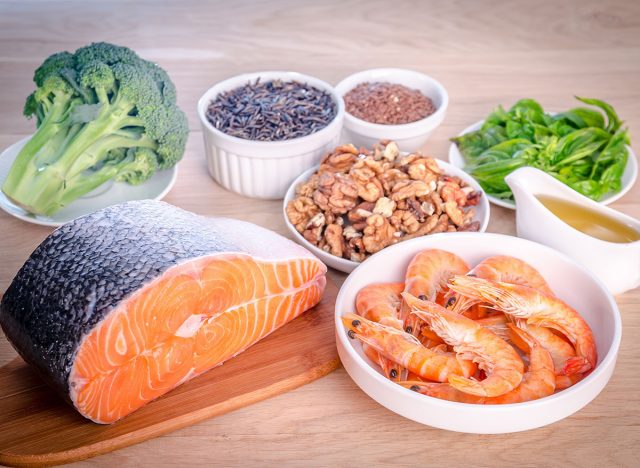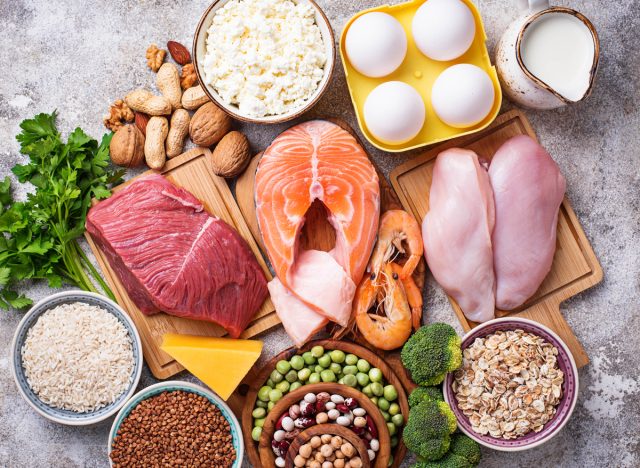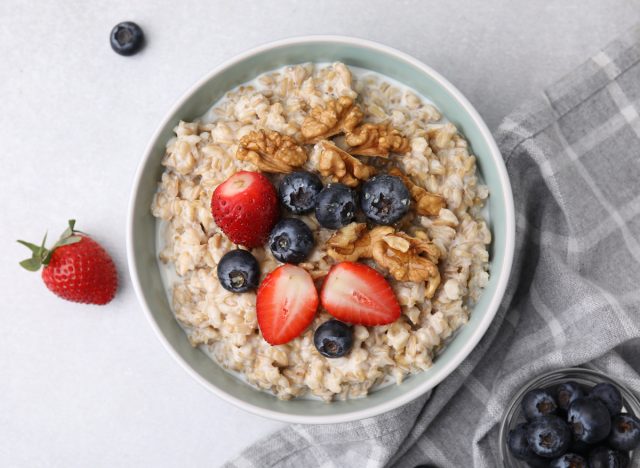Over 60? Steer Clear of These 7 Eating Habits That Can Harm Your Health
As you gracefully step into your 60s—or perhaps you’ve already been there a while—you might be sensing a noticeable shift in your body. Yes, aging brings its fair share of changes, from the not-so-great creaks in your joints to the more subtle ways your metabolism can slow down. This is precisely why maintaining healthy eating habits and staying active is crucial during this vibrant chapter of life. While there’s a plethora of healthy practices to embrace, some habits can inadvertently sabotage your wellness goals. To help you navigate this terrain, we reached out to seasoned dietitians for their insights on eating habits everyone should steer clear of in their 60s.
- Advertisement -
Neglecting Prebiotics
“Prebiotics are the fuel that keeps your gut bacteria thriving, and they’re especially vital for your intestinal health and hormonal balance as you journey into your 60s,” explains Kara Landau, a registered dietitian and founder of The Prebiotic Dietitian. As you age, the diversity of your gut flora tends to decline, which can throw a wrench in your overall health, impacting everything from hormones related to satiety to metabolic function. To keep your gut bustling with beneficial bacteria, incorporate prebiotic-rich foods into your diet such as onions, garlic, cooled potatoes, jicama, raw oats, legumes, and nuts like cashews and pistachios. Think of it as a smorgasbord for your gut microbiome—fuel it well and let it flourish!
Consuming Excess Sugar
“While it may seem a no-brainer to cut down on sugary foods, sugar has a sneaky way of infiltrating our diets,” notes Landau. From the hidden sugars in seemingly innocent sauces and dressings to the sugary surprises lurking in packaged breads, it’s astonishing just how easily sugar can sneak into your meals without you batting an eye. If you’re not vigilant, those little spoonfuls can add up and wreak havoc on your health.
Overlooking Omega-3 Fatty Acids and Plant Sterols
“Rather than focusing solely on what you should eliminate from your plate, it’s equally important to consider what nutrient powerhouses to include,” says Landau. With changing hormone levels that once acted as guards against heart issues, it becomes imperative to consciously invite more omega-3 fatty acids into your life. For those watching their cholesterol, turning to plant sterols—found in fortified foods—can also lend support. Think of wild-caught salmon, algae-based foods, and even humble hemp seeds, walnuts, and flaxseeds. These little wonders can play a crucial role in keeping your heart in tip-top shape.
Insufficient Protein Intake
Protein, oh dear protein! It’s not just vital for those “gainz” during your gym days—it’s crucial for maintaining muscle mass, bone health, and even for your weight loss endeavors, especially as the years roll on. “As we hit the 60s, the risk of muscle loss becomes more pronounced, and skimping on protein only accelerates that process,” states Courtney d’Angelo, MS, RD, and author at GoWellness. D’Angelo suggests incorporating protein powerhouses like eggs, salmon, grass-fed beef, and poultry into your diet. You might even consider jazzing up your morning routine with some whey protein in your coffee or oatmeal—what a delicious way to kickstart your day!
Not Staying Hydrated
It may not be the most glamorous topic, but hydration is the unsung hero of health. As we age, our thirst cues might not be as loud, and as a result, older adults can find themselves battling dehydration more often. “People in their 60s frequently suffer from dehydration without even realizing it,” points out Lisa Young, PhD, RDN, author of Finally Full, Finally Slim. So, be sure to keep that water bottle handy—it’s a simple yet effective way to bolster your health!
Late-Night Snacking
Believe it or not, munching late at night could be a sneaky saboteur of your health, even if you’re choosing nutritious options! The problem doesn’t always lie solely with unhealthy snacks; it’s the tendency to overeat in the evening that can be detrimental. “Late-night munching often leads to a cocktail of weight gain and blood sugar volatility, which is particularly worrisome for older adults,” warns Lisa Young.
A Low-Fiber Diet
A diet lacking in fiber is a ticket to digestive troubles and an overall decline in health. Fiber is not just a buzzword; it’s essential for keeping you regular and supporting the healthy bacteria in your gut. “Incorporate both soluble and insoluble fibers for comprehensive digestive health,” recommends Landau. To supercharge your fiber intake, look to berries, oatmeal, apples, beans, and chickpeas. Think of it as nurturing your body from the inside out—your gut will thank you!
Report By Axadle






